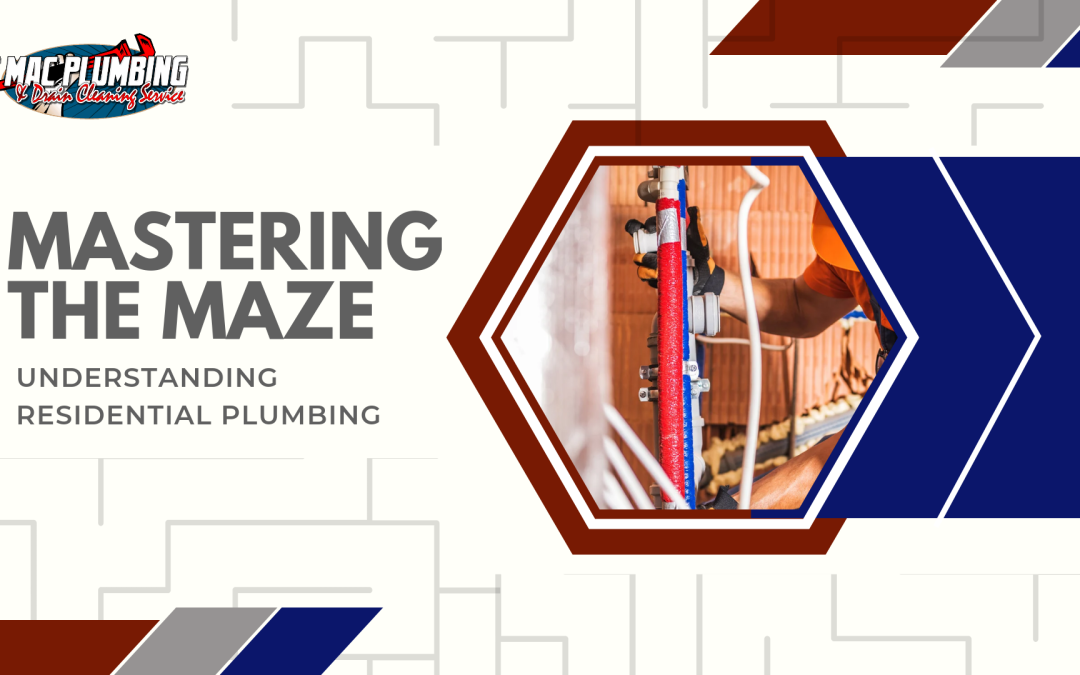Plumbing systems are the unsung heroes of every home, silently working behind the scenes to provide homeowners with the essential comforts of running water and sanitation. Understanding the intricacies of residential plumbing is crucial for homeowners, as it empowers them to identify issues, perform basic maintenance, and make informed decisions when hiring professionals. In this blog post, you will navigate through the maze of residential plumbing, shedding light on its key components and common challenges.
1. Water Supply: The heart of any plumbing system is the water supply. Municipal water enters through a main supply line, branching out to various fixtures like sinks, showers, and toilets. Understanding how to shut off the main water supply is essential in emergencies to prevent flooding and water damage.
2. Drainage: Wastewater flows away from fixtures and is channeled through drain pipes into the sewage system or a septic tank. Regular maintenance, such as preventing grease buildup and avoiding flushing non-flushable items, helps prevent clogs and backups.
3. Fixtures and Faucets: Toilets, sinks, showers, and faucets are the visible parts of a plumbing system. Understanding their basic workings and carrying out simple repairs like replacing washers or cartridges can save money and prevent leaks.
4. Pipes: Plumbing pipes can be made of various materials, including copper, PVC, and PEX. Understanding the pros and cons of different pipe materials can aid homeowners in making informed choices during renovations or repairs.
5. Water Heaters: Whether tankless or traditional, water heaters provide hot water for bathing and cleaning. Regular maintenance, such as flushing the tank to remove sediment, can prolong their lifespan and ensure efficient operation.
6. Plumbing Maintenance: Homeowners should perform routine checks for leaks, drips, and unusual sounds. Timely identification of issues can prevent costly repairs down the line.
7. Professional Help: While DIY fixes are great for minor issues, it’s essential to recognize when professional help is needed. Complex problems like sewer line blockages or extensive leaks should be addressed by experienced plumbers.
By mastering the fundamentals of residential plumbing, homeowners can take proactive steps to maintain their plumbing systems and minimize potential problems. While not all plumbing issues can be anticipated, a solid understanding of the basics empowers homeowners to navigate the plumbing maze with confidence, ensuring the comfort and functionality of their homes for years to come. Remember, plumbing isn’t just about pipes; it’s about maintaining a smoothly running household.


